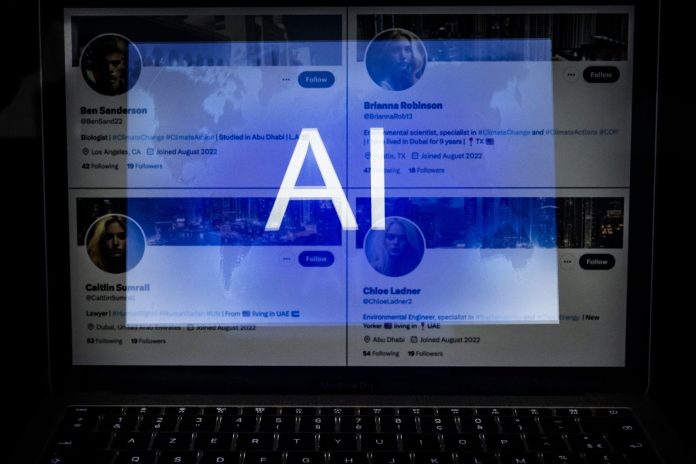The Vatican has released a new document, Antiqua et Nova, which examines the growing influence of artificial intelligence (AI) and its implications across various sectors, including education, the economy, healthcare, warfare, and human relationships.
A collaborative effort between the Dicastery for the Doctrine of the Faith and the Dicastery for Culture and Education, the document offers guidance on ethical considerations in AI development and usage.
The document is particularly addressed to “those entrusted with transmitting the faith,” as well as to “those who share the conviction that scientific and technological advances should be directed toward serving the human person and the common good”.
In 117 paragraphs, Antiqua et Nova highlights both the potential and risks of AI, stressing that it should be seen as a product of human intelligence rather than an artificial version of it.
Quoting Pope Francis, the document asserts that “the very use of the word ‘intelligence’ in connection to AI ‘can prove misleading’… in light of this, AI should not be seen as an artificial form of human intelligence, but as a product of it” [35].
The Vatican acknowledges AI’s role in advancing technology but warns against its unintended consequences.
“Like any product of human ingenuity, AI can also be directed toward positive or negative ends” [40]. It further states that AI “could introduce important innovations” [48], while also posing risks such as exacerbating discrimination, increasing poverty, and worsening the “digital divide” [52].
Additionally, the document raises concerns over AI’s concentration in the hands of a few powerful corporations, warning of “the risk that AI could be manipulated for personal or corporate gain or to direct public opinion for the benefit of a specific industry” [53].
One of the document’s strongest warnings pertains to AI-driven warfare, cautioning against autonomous and lethal weapons systems that can “identify and strike targets without direct human intervention” [100].
The Vatican describes these as a “cause for grave ethical concern” [100], reiterating Pope Francis’ call for a ban on such weapons due to their potential to create an “existential risk” and threaten entire regions or even humanity itself [101].
The document underscores that this issue demands urgent attention, reflecting the Church’s long-standing concerns about technological advancements that grant war “an uncontrollable destructive power over great numbers of innocent civilians,” including children [101].
Antiqua et Nova also examines how AI influences human relationships, warning of its potential to cause “harmful isolation” [58]. It highlights the dangers of anthropomorphizing AI, particularly in how it affects children’s development [60].
The document states that misrepresenting AI as a person is “a grave ethical violation” when done “for fraudulent purposes” and stresses that using AI to deceive in contexts such as education or human relationships is “immoral and requires careful oversight” [62].
In the economic sphere, the Vatican acknowledges AI’s ability to boost productivity but notes that “current approaches to the technology can paradoxically deskill workers, subject them to automated surveillance, and relegate them to rigid and repetitive tasks” [67].
Education is another area where AI presents both promise and risks. The document states that AI “presents both opportunities and challenges” and can improve access to education by offering “immediate feedback” to students [80].
However, it warns against AI-driven programs that merely provide answers rather than encouraging critical thinking and independent learning [82]. Furthermore, the Vatican expresses concern over the spread of “biased or fabricated information” and “fake news” through AI-generated content [84].
A major concern raised by the Vatican is AI’s role in the proliferation of misinformation. The document warns of the serious risk posed by AI-generated “manipulated content and false information” [85], especially when spread with deceptive intent [87].
It stresses that “those who produce and share AI-generated content should always exercise diligence in verifying the truth of what they disseminate and, in all cases, should ‘avoid the sharing of words and images that are degrading of human beings, that promote hatred and intolerance, that debase the goodness and intimacy of human sexuality or that exploit the weak and vulnerable’” [89].
Regarding privacy, the Vatican notes that some types of AI data collection “touch upon the individual’s interiority, perhaps even their conscience” [90]. It warns against a world where personal data “becomes a kind of spectacle to be examined and inspected” [92].
The document also highlights the risks of digital surveillance, which can be “misused to exert control over the lives of believers and how they express their faith” [90].
Despite the concerns, Antiqua et Nova acknowledges AI’s potential benefits in areas like environmental sustainability. It states that “AI has many promising applications for improving our relationship with our ‘common home’” [95], though it also warns that current AI models consume vast amounts of energy and water, significantly contributing to CO2 emissions [96].
The document concludes by cautioning against humanity becoming “enslaved to its own work” [105]. It insists that artificial intelligence “should be used only as a tool to complement human intelligence rather than replace its richness” [112].
With Antiqua et Nova, the Vatican reinforces its commitment to ethical considerations in technological development, urging global stakeholders to ensure that AI remains a tool for the common good rather than a force for division, inequality, or destruction.









